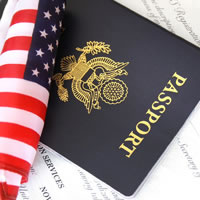Is it Illegal to Lie to a Police Officer in Arizona?

Law enforcement has a tough role to perform in society. They depend on details and information from witnesses. Not everyone shares accurate information with the law though, and that creates plenty of problems and barriers. To reduce the risk of it happening, there are laws in the state of Arizona to prevent it.
Those that do lie and get caught can end up with some additional charges against them. If they are lying to help someone else, they could end up with charges against them beyond simply lying to the cops. This can include being considered an accomplice to given crimes that took place by someone else. Knowing about those plans and remaining silent or intentionally covering up for them is illegal.
It is illegal to lie to an Arizona police officer. The specific statute about this is 13-2907.01. The statute specifically deals with false reporting. It is deemed illegal to make any statement that is known to be false to law enforcement. It is illegal to knowingly misrepresent information or intentionally mislead a police officer.
For someone to get into trouble for lying to a peace officer, they have to knowingly and intentionally not be telling the truth. If it is discovered later on they did so, they may face various charges. The lies can be hard to prove if they were given orally. If they are in a written statement signed by the individual, that will be used as evidence against them.
Obstruction of Justice
There are times when lies to cops mean they can’t do their job correctly. They are wasting time and resources following the wrong leads. They may have to spend additional time to break holes in your story. When this happens, a person can be charged with obstruction of justice. They are believed to be intentionally in the way of allowing officers to perform their duties.
In Arizona, statute 13-2409 pertains to obstruction of justice. It goes beyond just lying to the cops though. If you purposely withhold information or evidence you know they need, that can get you into hot water with the legal system. This is typically charged as a class 5 felony. It can be upgraded to a class 3 felony if the person is hiding information to protect someone involved with gang activity.
Obstruction of justice is a serious offense if it prevented law enforcement from getting criminals off the streets. The severity of the charges against those you lied for often play a role in the consequences handed down. Intentionally incriminating someone else for a crime when you knew they weren’t part of it also falls under this classification.
Emergency Response
When emergency response teams are sent out based on false information given to law enforcement, it prevents them from helping in real scenarios. Under 13-2907, this includes reporting a fire, robbery, or bombing knowing such claims hold no merit. A person isn’t held liable though if they overheard something and reported it because they thought the threat was real.
It all depends on how it is stated and reported. Sharing facts makes a difference in the outcome and if any charges will be in place. For example, if you hear someone at a coffee shop talking about a bomb they have put in the bathroom and report it, you aren’t liable if it turns out not to be true. If you are running late for work and report a bomb threat at the coffee shop to avoid getting in trouble for being late to the office, you can be held accountable for it.
Sometimes, false reports are sent in like this to cover up true crimes taking place. For example, sending emergency responders to a reported fire that doesn’t exist gets them out of the way. This can give criminals time to take part in some other type of illegal activity. The fire was called in to create a diversion.
Fines and Expenses
False reporting that sends emergency services intentionally to a location where there is no emergency can result in owing fines and expenses. The cost of sending out those services adds up quickly. When there is no doubt someone lied to get the emergency responders to a given destination, they can be held legally responsible to repay all of the expenses involved.
This can include:
- Emergency response vehicles used
- Wages paid for investigating the situation
- Materials and supplies wasted
- Loss of business if a structure is shut down due to the false report
- Damages to vehicles if applicable
- Medical care resulting from any injuries if applicable
Perjury
Getting caught up in the lies often happens in Arizona when cases go to court. The prosecution will be going over all of the information shared with them with a fine-toothed comb. They look for inconsistencies that can make witnesses unreliable and not credible on the stand. When someone incriminates themselves, it is perjury.
A person can be charged with a class 4 felony if they are found guilty of perjury. It can also harm the defense case. When someone has lied and gotten caught, it raises plenty of doubt. Why did they lie? What else did they lie about? All of this can work against them in a court of law. It doesn’t look good in the eyes of the law or the eyes of the jury that is going to vote on the outcome of the defendants.
When the person committing perjury wasn’t the one on trial, they can face charges that stem from the one they testified in. A court date to address those specific charges can be set. This will all be separate from the current issue that is going on in the courtroom.
Consequences
If a person is found to have lied to an Arizona police officer, they can face various consequences. It all depends on the situation and what the outcome of that action was in a given case. For example, false reporting of an incident to get someone else in trouble can come with a brand new set of charges. Lying to aid someone to get away with a crime or provide an alibi for them could get the individual charged as an accomplice with those crimes.
In other situations, lying to an Arizona cop is going to result in a misdemeanor charge. The individual may need to appear in court for the charges to be addressed. The typical consequences with such a scenario include a fine and community service. Each case is treated independently and the consequences are designed to fit the particular situation.
Should any individual be found guilty a second time for lying to a police officer, it can’t be classified as a misdemeanor. A second charge would be classified as a class 6 felony. Police have plenty of resources and it is always best to be honest with them from the start. This will help them get to the bottom of the situation and for it to be resolved accordingly.
Various laws that pertain to lying to cops in Arizona. The outcome will vary depending on the situation and what took place. The charges are designed to fit the specific situation. A person has to be careful if they choose to lie to peace officers. They may not realize the damage they are creating or the full scope of the case that is being investigated. The outcome for them may be damaging and be a permanent part of their criminal record.

















